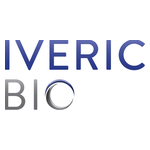
Iveric Bio Announces Presentation of Post-Hoc Analysis at Macula Society from GATHER1 Clinical Trial of Zimura® in Patients with Geographic Atrophy
PARSIPPANY, N.J.–(BUSINESS WIRE)–IVERIC bio, Inc. (Nasdaq: ISEE) announced today a post-hoc analysis from the Zimura® (avacincaptad pegol) GATHER1 clinical trial which explored enhanced Optical Coherence Tomography (OCT) image analysis to examine the effect of Zimura on change in Ellipsoid Zone (EZ) integrity and growth of OCT-measured geographic atrophy (GA), and to examine the correlation between Fundus Autofluorescence (FAF)-measured and OCT-measured GA progression in the GATHER1 trial. The analysis was presented by Justis P. Ehlers, MD, Cole Eye Institute, Cleveland Clinic, today at the Macula Society Meeting in Berlin, Germany.
The results of the post-hoc analysis showed that OCT-measured GA area strongly correlated with FAF-measured GA area, with minimal average differences in GA area between modalities. As typically used in GA clinical trials, FAF was utilized to measure GA in the GATHER1 clinical trial. A 30% reduction was observed in OCT-measured GA growth with Zimura at 12 months, which is consistent with findings using FAF-measured GA growth in GATHER1. In addition, a 22% reduction in progressive EZ loss/attenuation at 18 months was observed with Zimura compared to sham.
“These data further support the positive results of the GATHER1 study and avacincaptad pegol as a potential treatment for patients with GA, who currently do not have any treatment options,” stated Justis P. Ehlers, MD. “The strong correlation between OCT- and FAF-measured GA area also highlights the potential for ophthalmic specialists to potentially utilize their choice of modality to accurately evaluate patients. In addition, this analysis supports EZ integrity as a potential important endpoint in AMD that deserves further exploration.”
“This important study illustrates the potential for eye care providers to accurately diagnose and monitor patients with geographic atrophy with OCT alone, without additional equipment required,” said Christopher Simms, Chief Commercial Officer of Iveric Bio. “This is important since OCT imaging technology is believed to be more broadly available across the eye care provider community.”
The analyses were performed in collaboration with The Tony and Leona Campane Center for Excellence in Image-Guided Surgery and Advanced Imaging Research, at the Cole Eye Institute, Cleveland Clinic, and included macular cube OCT scans from the Zimura 2 mg and 4 mg groups (n=150), and sham group (n=110). The scans were loaded into a machine-learning enhanced OCT mapping software and analyzed for integrity of the outer retinal layers, including the EZ, as well as the sub-RPE compartment. No additional safety analysis was performed as part of the post-hoc analysis.
The full set of slides of the presentation is available on the Company’s website at https://investors.ivericbio.com/events-and-presentation.
About GATHER1 and GATHER2
The Company previously announced that in GATHER1, Zimura (avacincaptad pegol) met its pre-specified primary efficacy endpoint with statistical significance. The most frequently reported ocular adverse events in this trial were related to the injection procedure. The Company expects topline data for GATHER2, a second Phase 3 clinical trial for Zimura for GA, to be available in the third quarter of 2022, approximately one year after the enrollment of the last patient in the trial plus the time needed for database lock and analysis. If 12-month results from GATHER2 are positive, the Company plans to submit applications with the U.S. Food and Drug Administration (FDA) and the European Medicines Agency (EMA) for marketing approval of Zimura for GA. There are no FDA or EMA approved treatments available for patients with GA.
About Zimura
Zimura (avacincaptad pegol) is an investigational drug product and has not been approved for use anywhere globally. Zimura is designed to target and inhibit the cleavage of complement protein C5 and the formation of its downstream fragments, C5a and C5b. By inhibiting the formation of these fragments, Zimura is believed to decrease or slow the chronic inflammation and cell death associated with the retinal aging process by decreasing the formation of membrane attack complex (MAC) and inflammasome activity, thereby potentially avoiding or slowing the degeneration of retinal pigment epithelial cells. This potential mechanism is the rationale for Zimura as a potential therapy for geographic atrophy.
About Iveric Bio
Iveric Bio is a science-driven biopharmaceutical company focused on the discovery and development of novel treatments for retinal diseases with significant unmet medical needs. The Company is committed to having a positive impact on patients’ lives by delivering high-quality, safe and effective treatments designed to address debilitating retinal diseases including earlier stages of age-related macular degeneration. For more information on the Company, please visit www.ivericbio.com.
Forward-looking Statements
Any statements in this press release about Iveric Bio’s future expectations, plans and prospects constitute forward-looking statements for purposes of the safe harbor provisions under the Private Securities Litigation Reform Act of 1995. Forward-looking statements include any statements about the Company’s strategy, future operations and future expectations and plans and prospects for the Company, and any other statements containing the words “anticipate,” “believe,” “estimate,” “expect,” “intend”, “goal,” “may”, “might,” “plan,” “predict,” “project,” “seek,” “target,” “potential,” “will,” “would,” “could,” “should,” “continue,” and similar expressions. In this press release, the Company’s forward looking statements include statements about its expectations regarding its development and regulatory strategy for Zimura, including the timing of receipt of topline data from the GATHER2 clinical trial and its plans to file for marketing approval for geographic atrophy if the results of GATHER2 are positive, the potential utility of Zimura and the clinical meaningfulness of clinical trial results and data, including from post-hoc analyses of the GATHER1 clinical trial. Such forward-looking statements involve substantial risks and uncertainties that could cause the Company’s development programs, future results, performance, or achievements to differ significantly from those expressed or implied by the forward-looking statements. Such risks and uncertainties include, among others, those related to the progress and success of research and development programs and clinical trials, developments from the scientific and medical community and other factors discussed in the “Risk Factors” section contained in the quarterly and annual reports that the Company files with the Securities and Exchange Commission. Any forward-looking statements represent the Company’s views only as of the date of this press release. The Company anticipates that subsequent events and developments may cause its views to change. While the Company may elect to update these forward-looking statements at some point in the future, the Company specifically disclaims any obligation to do so except as required by law.
ISEE-G
Contacts
Investor:
Kathy Galante
Senior Vice President, Investor Relations
kathy.galante@ivericbio.com
or
Media:
Jeannie Neufeld
Senior Director, Public Relations & Communications
jeannie.neufeld@ivericbio.com
